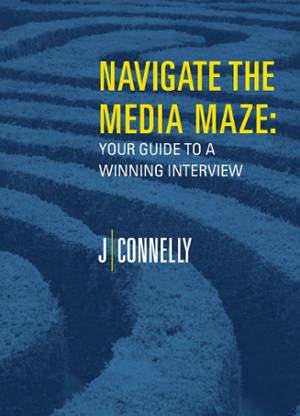P.T. Barnum’s mantra was “there’s no such thing as bad publicity” and Oscar Wilde believed that there is only one thing “worse than being talked about, and that is not being talked about.” Marketers and PR professionals know all too well that neither of those statements is really true. If you don’t believe me, just ask anyone at United Airlines whether all that recent publicity did their brand any good.
Getting your company or brand featured in a major media broadcast interview is a coup for any marketing executive, but if the interview goes off track it can do more harm than good. The last thing you want is for your moment in the spotlight to be remembered for the wrong reasons. Following are three high-profile mistakes you should try to avoid.
1. Don’t Get Media Coaching On Camera
Not everyone is comfortable in front of a camera. Many executives are far removed from their comfort zones in an interview setting where someone else is asking all the questions. To counter this, public relations firms often offer clients media coaching sessions to help them stay on message when they do meet the press. And coaching isn’t just for media newbies. Even those with considerable media experience rely on it in crisis situations. The key however is to get the coaching before the cameras show up.
Ken Starr, who came to national prominence as Bill Clinton’s personal Inspector Javert and parlayed that into a job as president of Baylor University, discovered that the hard way. A day after resigning his position in the wake of a sexual assault scandal involving the schools’ football team, Starr did an interview a local TV news crew in an attempt to salvage his own reputation.
When asked about an email, with the subject line “I Was Raped at Baylor,” that a victim had sent to his office, a question for which he should have been ready, Starr stumbled over his answer. At that point his off-camera media coach asked the news director not to use that part of the interview. When she didn’t get the answer she wanted, she pulled Starr out of the interview for some on-the-spot media coaching, but when the interview resumed, things didn’t get much better. He offered a better answer and then turned to his coach for reassurance and then made a third stab at answering the question.
If you’re asked to appear on television, make sure you’re prepared. Be well-versed on whatever topic at hand. If you’ve been selected because of your professional expertise make sure you can relate it to the news of the day. If you’ve been asked to appear because your company or brand is in crisis, expect the interviewer to ask about the subject you’d least like to address.
If you don’t have a media coach, work with a colleague to prepare. Have them ask the types of questions you’re expecting, including some you’d rather not answer. And practice your responses until they sound genuine and come without hesitation.
2. Don’t Blow the Softballs
Media coaches will force the subject to confront the questions they would rather not answer. While it’s important to be ready for “gotcha,” not every interviewer is an adversary looking to ambush you. Every now and then you’re liable to be asked a “Mom and apple pie” question, where there’s really no wrong answer, as long as you can give an answer.
Almost 10 years later there’s still no better example of how to swing and miss at a softball pitch than Sarah Palin’s answer to Katie Couric’s question about what specific newspapers or magazines she reads to keep informed. Almost any response other than, “all of them,” would have worked. She could have named The Fairbanks Daily News-Miner, one of her state’s largest papers, or if she couldn't think of a print publication, sucked up to the interviewer by saying she stays informed by watching CBS News.
3.Don’t Forget to Lock the Door
Finally, when you do manage to score that media interview, make sure you clear your schedule and give yourself plenty of time to get to the studio early. If it’s a remote segment from your office or home, make sure there are no interruptions. And make sure your office door is locked.
In a clip that’s been seen around the world, Robert Kelly, a political science professor at South Korea’s Pusan National University, discovered the importance of that last tip. He was doing a Skype interview with the BBC about the impeachment of that country’s president, when his two children, decided to join the fun as their anxious mother ran in to shoo them out. Kelly was good-natured and did his best to continue the interview, but ultimately came off more like a hapless sitcom dad than an expert on geopolitical affairs. Needless to say his insightful commentary on the South Korean political situation is not what viewers will remember.
There’s a lot more to being media savvy than just avoiding these types of mistakes. There are many more tips outlined in “Navigate the Media Maze,” JConnelly’s latest free eBook.




Let’s Connect
Ready to build, grow, manage and protect your brand? Complete the form below to discuss how we can help.